
Enat Bank, a late entrant private bank, had an interesting last fiscal year, recording an impressive profit increase. However, the bank's net gain from the foreign currency exchange fell to nil.
In the reporting period, the Bank amassed 208.2 million Br in net profit, a 33pc increase much higher than the industry average. The private commercial banking industry that has a little over a quarter of a century of existence has an average growth rate of 20pc.
Despite recording a strong performance in terms of profit increase, the Bank's earnings per share (EPS) remained about the same. The return to shareholders remained largely flat at 185 Br as a result of a 23pc increase in paid-up capital to 1.2 billion Br.
The Bank, which reported that it was challenged with the foreign currency mobilisation owing to the slower economic growth and decline of export revenue, earned nothing from net foreign currency dealings. During the previous year, Enat netted 10.2 million Br from the sector.
"The problem [challenges in foreign currency mobilisation] was further exacerbated by an inadmissible, illicit and controlled act of certain market agents," remarked Hanna Tilahun, the chairperson of the board of directors at Enat.
The paid-up capital increase is made with the main aim of reaching two billion Birr, where the entire banking industry is heading toward, according to Wondwossen Teshome, president of Enat, which has over 18,000 shareholders.
“We've been working to balance the need to increase the Bank’s capital while at the same time maintaining the dividends for shareholders,” Wondwossen said.
Based on individual consent, shareholders also seeded three to five percent of their returns as a contribution toward a women’s special fund dedicated to promoting female entrepreneurship. The fund is allocated to support women entrepreneurs who cannot provide collateral to receive bank loans.
Despite recording a strong performance in terms of profit increase, the Bank's earnings per share (EPS) remained about the same.
"This also contributed to the decline in EPS," Hanna told Fortune.
However, Abdulmenan Mohammed, a financial statement analyst with close to two decades of experience, cautioned the Bank's management to seriously think about its capitalisation policy.
"The Bank should balance between EPS and paid-up capital," he said. "Increasing the capital should not undermine the EPS."
In income-generating activities, the Bank registered mixed results. It recorded a sound financial intermediation operation that resulted in a 52pc increase in interest on loans, investment in NBE bonds and time deposits, reaching 742.8 million Br.
On the contrary, service charges and commissions showed a notable drop of 31pc to 169.6 million Br, while income from new foreign exchange dealings plunged from 10.2 million Br to zero in the last fiscal year.
It is concerning, according to Abdulmenan.
"The Bank should come up with a strategy to improve this,” Abdulmenan remarked.
Even though Enat allocated foreign exchange for clients, the Bank has not been able to secure the required foreign currency exchange from the NBE, according to Wondwossen.
“We are strictly following the orders of registration to serve our customers coming to our bank for foreign exchange services for imports. And that apparently put off many of our potential customers,” Wondwossen lamented.
The decline in foreign currency dealing earnings also concerns Aster Solomon, a shareholder of Enat Bank and founder and director of Mosaic Hotel.
Aster says that she is pleased about the overall performance of the Bank in the last fiscal year. She added that the strict regulatory framework issued by the NBE should not put banks like Enat at a disadvantageous position in terms of foreign exchange earnings.
The Bank’s massive expansion in expenses was reflected in the 55pc increase in interest on savings that reached close to 483.4 million Br. The salaries and benefits also rose by 24pc to 146.3 million Br, while other operating expenses went up by 16pc to over 114.7 million.
Enat also increased provisions for impairment of loans and other assets, which climbed by 32pc to reach 6.8 million Br.
“As Enat is a growing bank, further expansion in expenses is expected in the years to come,” Abdulmenan observed.
Enat, which operates with 15 branches, increased its total assets by 42pc to reach 9.2 billion Br. The 1.9 billion Br of investments Enat has made in the NBE bond showed a 39pc increase that altogether accounted for its 21pc of total assets and 27pc of total deposits. Both remained the same as in the preceding year.
The total amount of disbursed loans and advances of 5.1 billion Br showed a 54pc surge. It was also accompanied by a 43pc increase in deposits, which reached 7.1 billion Br.
Over a three percentage point increase in the ratio of loans to deposits pushed the rate up to 71.5pc.
The liquidity level of Enat increased in value, however, it declined in relative terms. Its cash and bank balances showed a 30pc increase to 1.7 billion Br, whereas the ratio of cash and bank balances to total assets decreased to 18pc from 20.2pc. Cash and bank balances to total deposits also declined by two percentage points to 24pc.
“Despite the reductions, the liquidity level of Enat is reasonable,” the expert noted.
The Bank’s paid-up capital has increased by 23pc to 1.2 billion Br. The capital adequacy ratio (CAR), which measures risk, declined to 27pc from 34pc. Despite the marked drop in CAR, Enat still maintained a ratio quite above the industry average of 23pc in 2018.
Hanna attributes the overall business climate in the country as a cause for the decline of CAR.
"The climate wasn't encouraging for local investors to start a new business or for expansion projects," Hanna said. "So many people weren't coming to us for a loan."
However, Abdulmenan believes that the capital of Enat is far more than required for its operation.
“The Bank should use its existing capital efficiently,” he recommended.
PUBLISHED ON
Dec 21,2019 [ VOL
20 , NO
1025]

Fortune News | Aug 18,2024
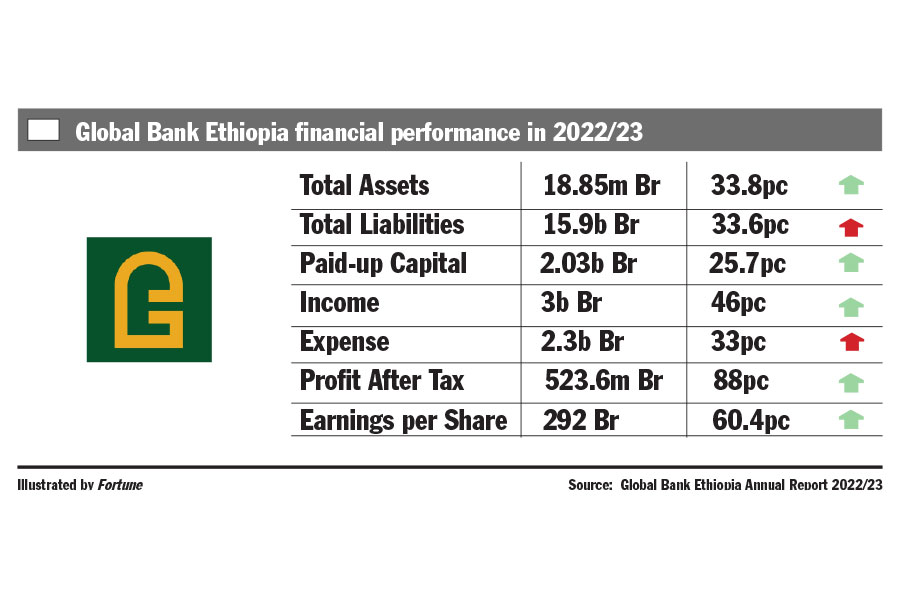
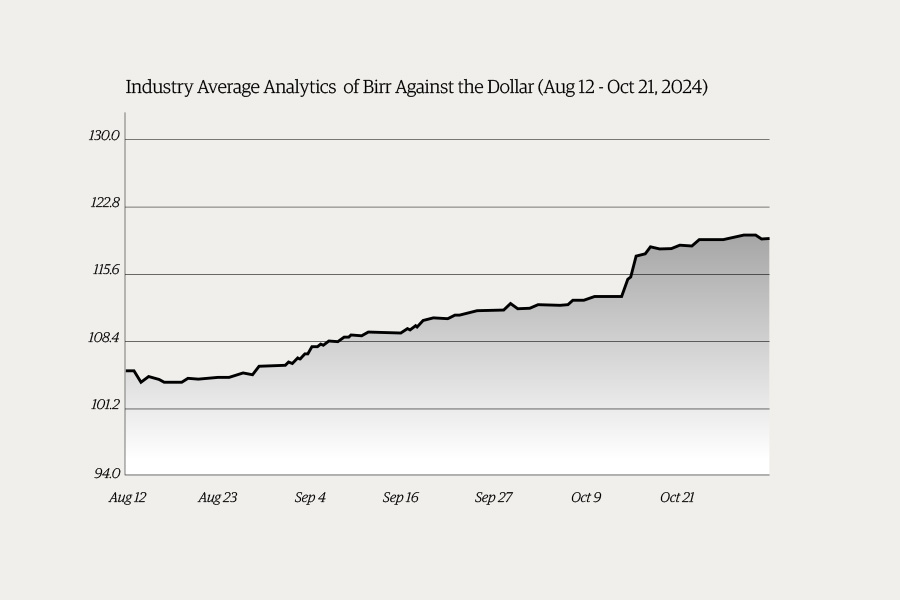
Money Market Watch | Nov 03,2024
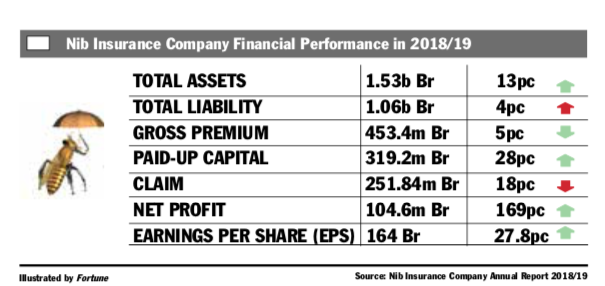
Fortune News | Dec 14,2019
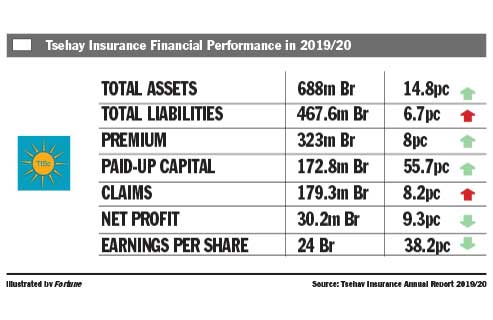
Fortune News | Feb 13,2021
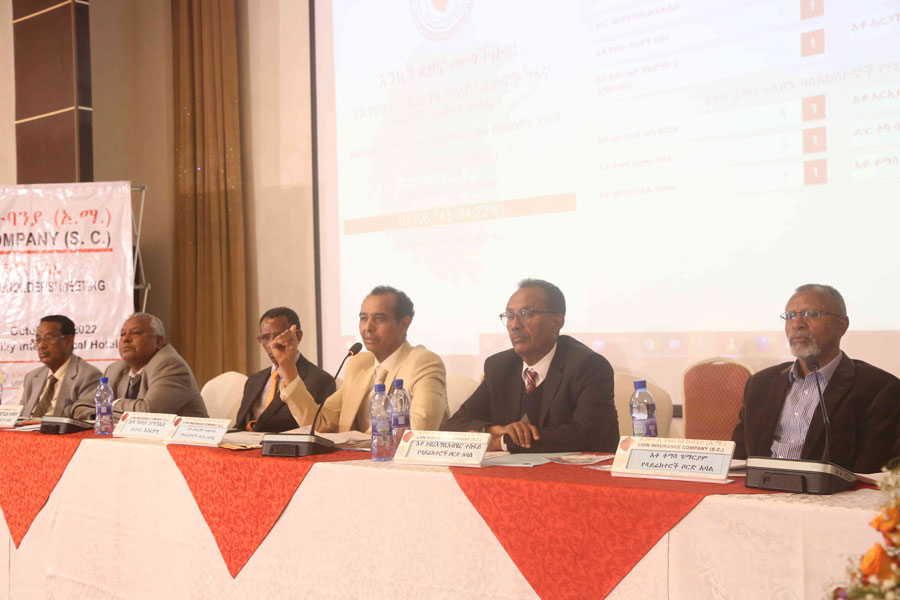
Fortune News | Feb 25,2023

News Analysis | Apr 20,2024
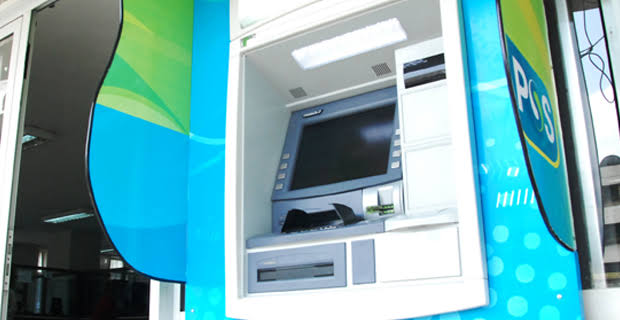
Fortune News | Jan 05,2020
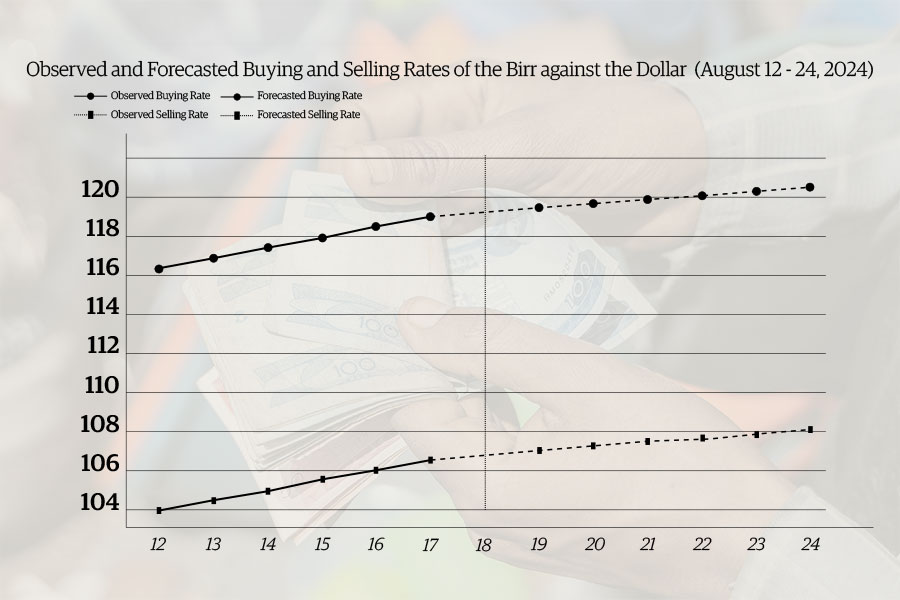
Money Market Watch | Aug 18,2024

Radar | Dec 25,2021

Dec 22 , 2024 . By TIZITA SHEWAFERAW
Charged with transforming colossal state-owned enterprises into modern and competitiv...

Aug 18 , 2024 . By AKSAH ITALO
Although predictable Yonas Zerihun's job in the ride-hailing service is not immune to...

Jul 28 , 2024 . By TIZITA SHEWAFERAW
Unhabitual, perhaps too many, Samuel Gebreyohannes, 38, used to occasionally enjoy a couple of beers at breakfast. However, he recently swit...

Jul 13 , 2024 . By AKSAH ITALO
Investors who rely on tractors, trucks, and field vehicles for commuting, transporting commodities, and f...

Oct 25 , 2025
The regulatory machinery is on overdrive. In only two years, no fewer than 35 new pro...

Oct 18 , 2025
The political establishment, notably the ruling party and its top brass, has become p...

Oct 11 , 2025
Ladislas Farago, a roving Associated Press (AP) correspondent, arrived in Ethiopia in...

Oct 4 , 2025
Eyob Tekalegn (PhD) had been in the Governor's chair for only weeks when, on Septembe...